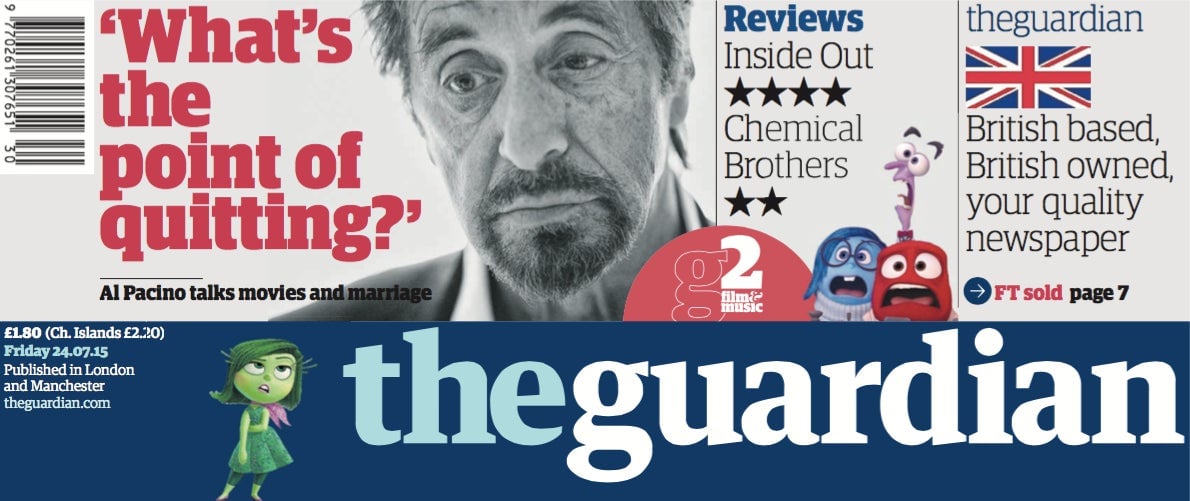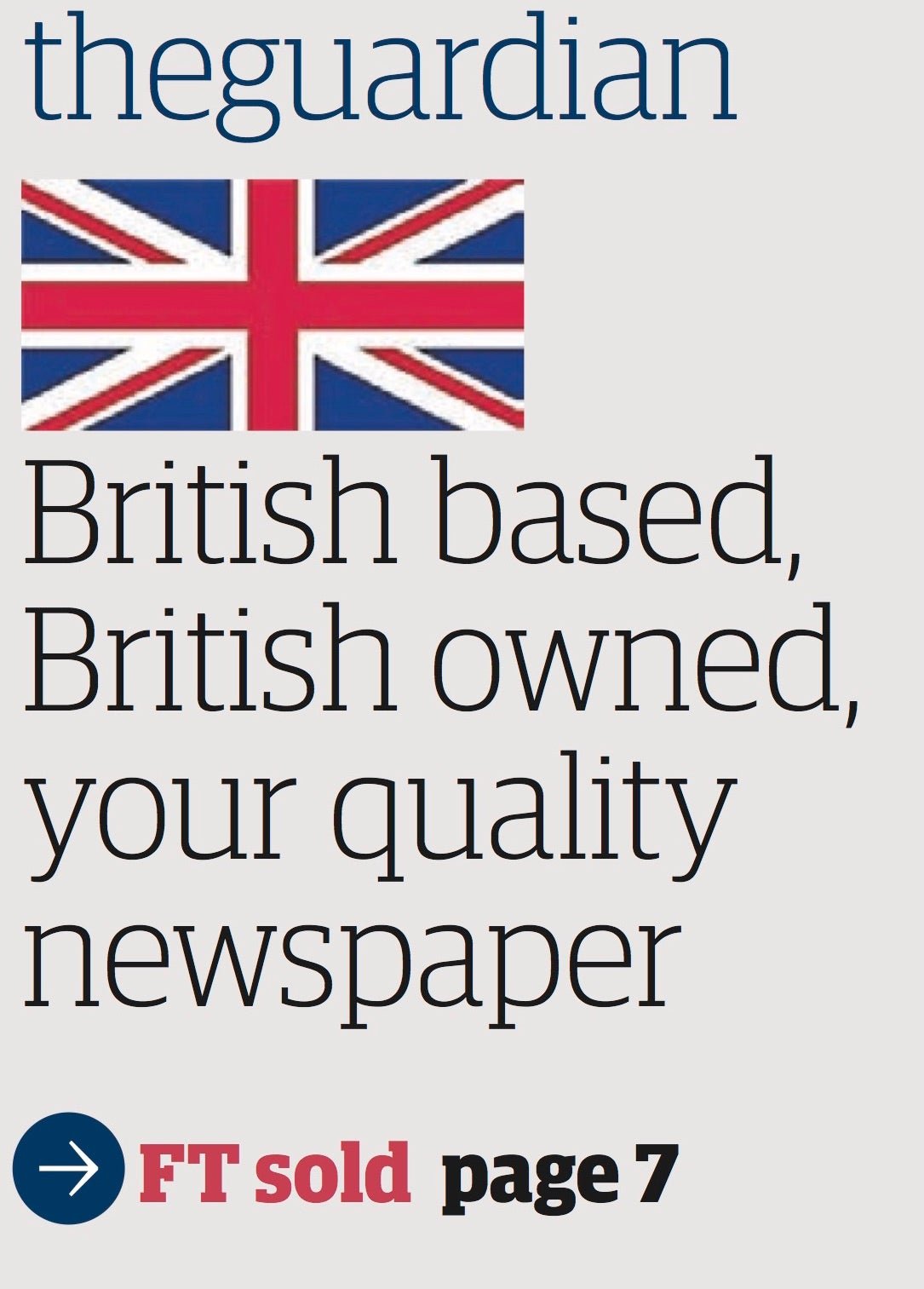The Guardian’s bizarrely xenophobic message to readers
The Guardian, Britain’s progressive newspaper of record, struck an uncharacteristically xenophobic tone on its front-page today, reminding readers that it is “British based, British owned,” below a Union Jack flag.


The Guardian, Britain’s progressive newspaper of record, struck an uncharacteristically xenophobic tone on its front-page today, reminding readers that it is “British based, British owned,” below a Union Jack flag.

In recent years, the British national flag has become freighted with nationalistic significance, and its proliferation has been adopted by the far-right UKIP Party as a cause. As a commenter wrote—in the Guardian—”By the 1990s, its association with empire and its eager usage by the National Front and bootboys in general (with their chant ‘there ain’t no black in the union jack’) had, unsurprisingly, made it look more than slightly sinister.”
The context for the Guardian statement today was the sale of the Financial Times—which, like the Guardian, has been British-owned since the 19th century—to the Japanese newspaper publisher Nikkei, for £844 million ($1.3 billion). The FT will remain based in London. “The FT is going to be the FT,” Nikkei president Tsuneo Kita said today (paywall). “It remains unchanged.”
The Guardian didn’t immediately return an email seeking comment. The front-page headline was probably intended as a joke, but it did not go over well with readers.
“British based, British owned” is the kind of sentiment one might more expect from the Sun or another of the UK’s more conservative papers. And it contrasted markedly with the Guardian’s own editorial on the FT’s sale, which argued, “in a global media world this deal makes sense”:
So there are obviously ways in which the deal might go wrong. But it is at least as possible that it will go right. The better parts of each company’s culture will come to influence the other. The world needs journalism that is both measured and punchy and the FT is today one of the papers that best supplies it. That in turn can only be sustained by a profitable business. Nikkei has the capital and the Financial Times the global reach, the language and the knowhow that could combine to build a media business that can make a profit from quality even in the digital age.